Tesla CEO Elon Musk shreds* the New York Times review of his Model S, using data to argue the writer is telling the wrong story.
I won’t pretend to know who’s actually right or wrong here — Tesla certainly only has an interest in telling its side of the story — but the fact that a company has the tools and distribution to quickly publish something like this today is pretty amazing. (See also, OXO’s wonderful takedown of rival Quirky.)
Even a few years ago, something like this probably would have required finding a rival newspaper — the Wall Street Journal, perhaps — to collaborate on a takedown. Or maybe an expensive full-page ad campaign in the top five papers, which would have looked defensive and seemed less convincing.
But now that every smart company has a regularly updated blog, Elon Musk has 136,000 Twitter followers, etc., brands can speak for themselves very powerfully. And if the tone is right, they don’t even look lame: Tesla actually looks pretty great right now*. The balance of power has shifted.
Monthly Archives: February 2013
Coming Soon to China: At-Home Toxic Food Test Kits
Fearful of accidentally chomping down on cardboard-stuffed dumplings or toxic chicken, Chinese consumers may soon be able to run safety tests on their food before putting it in their mouths.
According to a report from the official Xinhua news agency, scientists at the Tianjin University of Science and Technology in northern China have developed an at-home testing kit to help consumers detect more than 60 varieties of chemicals in their food.
The tests, conducted with indicator paper, let consumers know within minutes if a food sample contains harmful substances, Xinhua said, predicting the product will likely be in high demand.
Edelman Global Survey Finds Lack Of Trust Has Become Contagious
Richard Edelman, the head of the world’s largest privately held PR firm, said that the Edelman Trust Barometer, an annual global survey of 31,000 people, revealed a lack of trust for business and government that was “contagious” and spreading to other sectors.
He was speaking earlier this week at the Computer History Museum on a panel organized by the Churchill Club, and moderated by Peter Burrows, senior reporter at Bloomberg.
He said that it’s the first time that such lack of trust has become viral and it stems from the financial sector.
Jeffrey Pfeffer, co-panelist and professor at Stanford University Graduate School of Business, said, “We are all being tarred with the same brush.”
Tesla New York City Downtown
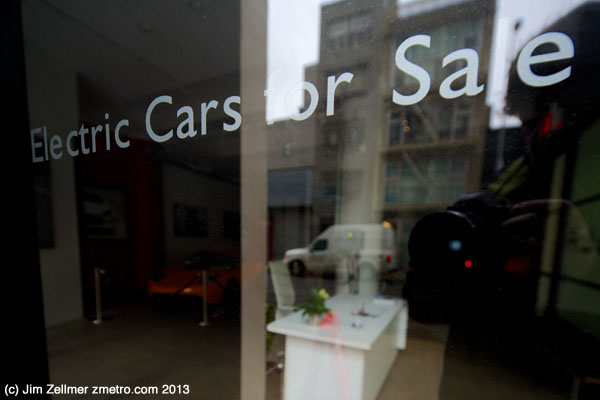
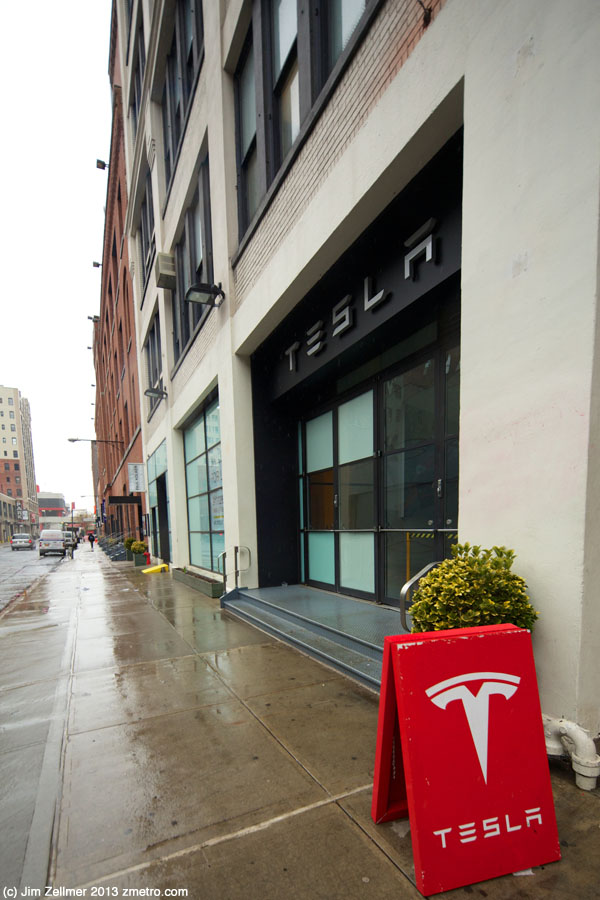
Tesla Motors. Tesla has been in a tussle with the New York Times over a recent review.
Software that tracks people on social media created by defence firm
A multinational security firm has secretly developed software capable of tracking people’s movements and predicting future behaviour by mining data from social networking websites.
A video obtained by the Guardian reveals how an “extreme-scale analytics” system created by Raytheon, the world’s fifth largest defence contractor, can gather vast amounts of information about people from websites including Facebook, Twitter and Foursquare.
Raytheon says it has not sold the software – named Riot, or Rapid Information Overlay Technology – to any clients.
But the Massachusetts-based company has acknowledged the technology was shared with US government and industry as part of a joint research and development effort, in 2010, to help build a national security system capable of analysing “trillions of entities” from cyberspace.
There’s a local business revolution on the horizon, and we can make it happen
9. Shuman suggests that we immediately do two things as a community. Together, he says, these two things would likely only cost us about $20,000. And, if we did them, we’d be infinitely better off than every other community in the United States. First, he suggests that we create a passive web listing of every local business investment opportunity there is. Second, he says that we should strike a deal with a local accountant to help implement a self-directed IRA initiative. If we could gather 1,000 individuals, all willing to pay $100 a year to have someone manage a self-dircted IRA, he suspects that we could find an accountant willing to drop his/her rates to accommodate us. And, once we have this mechanism, we could begin moving our savings from investments in the S&P 500, into our own communities. (Self-directed IRAs are currently legal under SEC rules.) The accountant would just have to do the administrative work of facilitating the investments in these local companies. And, as he says, this could happen immediately. (He said that, if we wanted, we could also consider implementing a community portal, like those being rolled out by Mission Markets.
A Few Friday Evening Snow Photos
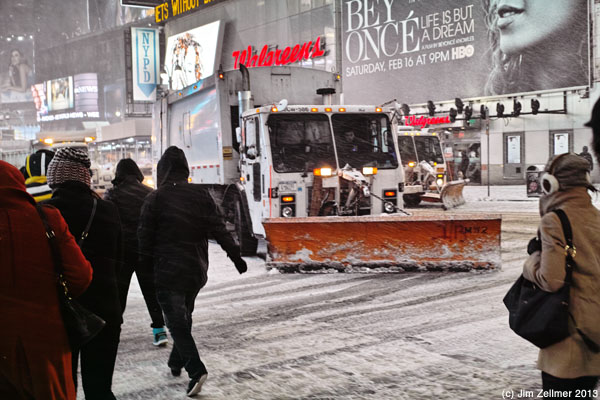

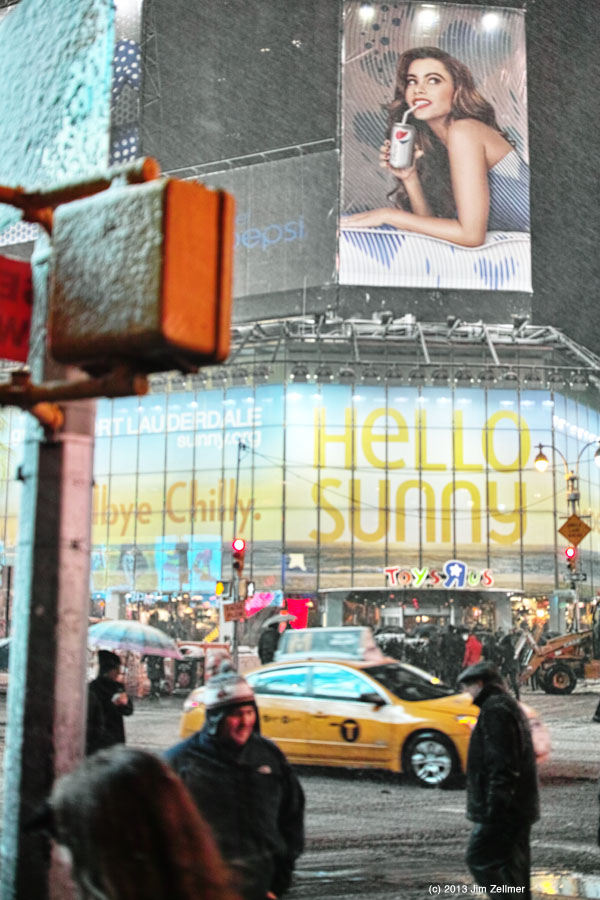

Surface Snow Advertising
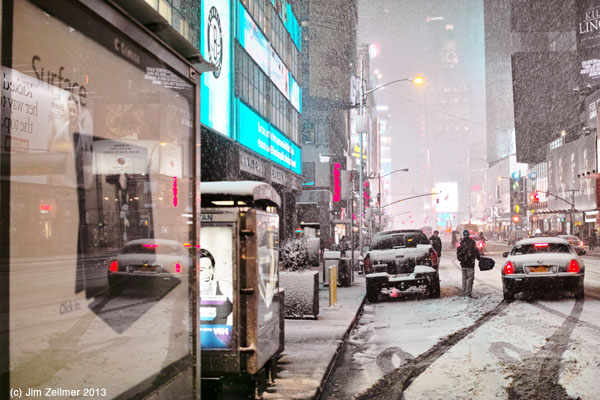
Silicon China
Nevertheless, the weakness of the United States is that it constantly underestimates the efforts and capabilities of its competitors. This means there will be surprises because China is making tremendous efforts and has tremendous talents. Over the past twenty years, its investment in R&D has doubled from .73 percent of GDP to 1.77 percent and the plan is to reach the European level of 2.5 percent by 2020. Just in the past decade, the volume of Chinese investment in R&D has grown by more than 600 percent, according to Professor of Technology and Innovation Management at IMD in Lausanne, Switzerland, and Professor Marc Laperrouza of the Evian Group at IMD, HEC, the University of Lausanne, and the Swiss Federal Institute of Technology. As a result, they say, China will soon go from being the world’s biggest factory to being its biggest laboratory.
They also note that China is graduating more than 700,000 engineers annually compared to about 60,000 in the United States. Of course, numbers like these can be misleading. What is an engineer? The standards vary greatly from country to country. We must also keep population sizes in mind when making comparisons. If we ask what percentage of students around the world are earning degrees in science and engineering, the answer in Europe , Asia, or the United States, the answer everywhere is 10-13 percent, according to former MIT President Charles Vest.
What is a book in the age of the iPad? An interview with Craig Mod
Craig Mod is a writer and designer who splits his time between Japan and the US. Formerly of Flipboard, much of his writing is concerned with ebooks and digital publishing — the pitfalls the industry falls into, and how best to avoid them. His most recent essay, Subcompact Publishing, sparked a lot of online chatter last November over its vision for a minimal, service-oriented publishing future. I sat down with Mod in December during his latest stopover in Tokyo to talk about these ideas, Japan, and more.